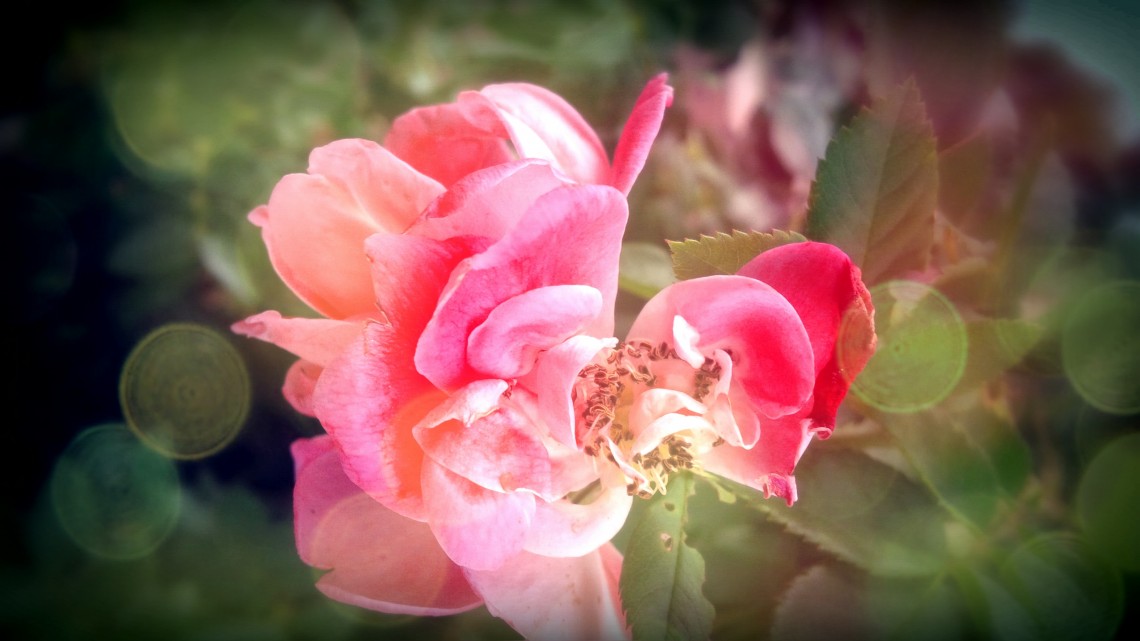It is very easy to believe what your thoughts say. If I think: I am worthless. I might believe it is true just because I think that. The thought might be the result of a particular event, but that does not mean it is true. Thoughts are not always facts. For example, take into consideration the thought that you are worthless because you failed at something. If there is a particular situation that makes you believe that you are worthless, you have to realize that there might be other situations that contradict that biased thought. Your bias takes that one thought and extrapolates without considering that a thought or pair of events do not define you or set you in a balanced position.
Consider saying the word: Flower. What did you just think? Did you just see an image of a flower? Did you imagine a bud or its offspring? Did you consider the expansive beauty of its presence as it provides other plants an opportunity to live through its pollen? Did you realize the unconditional communication between the sun, leaves and roots, and the nutrients hidden in the moistened dirt? Can you see that much more exists beyond the image of a “flower”?
If you can see that, then turn the idea of a “flower” into the thought “I am worthless”. Who is being worthless? You? But who are you? If you think of a flower, think of yourself as something more than an adjective and more than just words. You are this presence that thinks and considers, believes and hopes, and even dreams and creates. “I am worthless” is just a thought, a label that creates an image of yourself that is not considering evidence that portrays you as valuable and meaningful. If you think about all the care that was given to you, wouldn’t that mean that others say you as valuable? For example, consider your parents or guardian who cares enough to nurture you with shelter and food or consider a gentile passerby that shyly smiles and gives you a brief greeting. You are being valued just for that fact that you are a human being. Although we all care for each other in different ways and degrees, there is an essence that unites us: the poietic.
We, as human beings, can be the poietic. That makes us so valuable because we can expand our awareness beyond labels and biased beliefs, so we can see the unconditional communication between all things. In such a way that we can sublimate biased thoughts by unconcealing truth into our presence as Emily Dickinson writes in her poem The Earth has Many Keys:
“Beauty is nature’s fact.”[1]Emily Dickinson, The Complete Poems of Emily Dickinson, ed. Thomas Herbert Johnson, vol. 2, 1775.
For example, a dog is not just an image of a dog. It is the memories of joy. It is the beauty of a hairy caress. It is the nurture life has given it so it could exist. A dog is more much than just a dog. It is a relief of hurt as we feel loved when unhappy. This is just another example of how we are capable of seeing, as human beings, the poietic which is a constant perceiving through the depths of creative love. If we can see this creative love in action by expanding our awareness beyond labels or biased thoughts, we can see the unconditional communication between all things. It is through that flow that we are able to imagine and perceive in metaphor. It is not about how the world perceives you, but how you perceive the world to see the poetic. When you see a flower, see what’s beyond its structure or even the way others might regard that flower… Observe. You’ll begin to notice things you might have not seen before like the way the petal dries and changes color, the little fly resting on pollen, the leaf cut by a hungry caterpillar, a bud just starting to form, or even just the way the wind bounces strongly upon them without any petals falling.
I cannot exhaust you the wonders and greatness that surround you, so imagine… How much wonderful are you! Don’t empower those thoughts that come into your consciousness if they are biased. So if a thought pops up that does not do you justice, think about the poetic in you and that which surrounds you. Think about yourself as an invaluable work of art and transcend that drift that wants you to wash away the poetic in you. In the same way, observe yourself. Find yourself in those delicate details that surround you and expand your own vision of yourself by being poetic and perhaps by allowing yourself to be seen as being poetry.
References [ + ]

